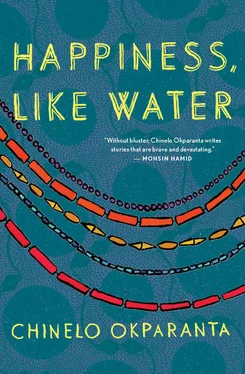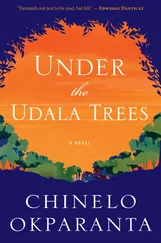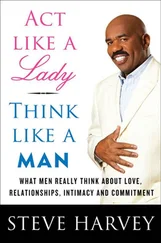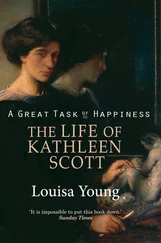Next was Glamour , then Elle . And every evening following that, Mama would sit on the parlour sofa for hours, flipping through the pages of the magazines, her eyes moving rapidly over and over the same pages, as if she were studying hard for the fashion equivalent of the university entrance exams.
I stare at the dissected apple, at the velvet tamarinds in it. I imagine picking one of the tamarinds up, a small one, something smaller than those old kobo coins, smaller than the tiniest one of them. Ekaite shuffles into the dining room, Eno close behind. They find themselves some space between me and the empty chair next to me. Ekaite sets the first tray down, three bowls of pounded yam.
She lifts the first bowl out of the tray, setting it on the placemat in front of Mama. Mama smiles at her, thanks her. Then, ‘Osiso, osiso,’ Mama says. ‘Quick, quick, bring the soup!’ Ekaite hurries back to where Eno is standing, takes out a bowl of soup from Eno’s tray, sets it in front of Mama. Mama says, ‘Good girl. Very good girl.’ The skin around Mama’s eyes wrinkles from her deepening smile. Ekaite nods but does not smile back. Eno, by my side, is more than unsmiling, and I can hardly blame her. But then I remember the bucket in the bathroom, and I feel hope billowing in me. Hope rising: the promise of relief.
It is Eno who serves Papa and me our food. She puts our dishes of pounded yam and soup on our placemats, still unsmiling. Papa thanks her, but it is a thank you that lacks all the fawning of Mama’s to Ekaite. He thanks her in his quiet, aloof way, as if his mind is in his office, or somewhere far from home.
Mama waves Eno away. I watch her hand waving, the gold rings on her fingers, the bracelet that dangles from her wrist.
‘Uzoamaka,’ Mama says, when Eno and Ekaite have disappeared into the kitchen. ‘You are looking very tattered today.’
Papa squints at her. I don’t respond.
‘It’s no way to present yourself at the dinner table,’ she says. The words tumble out of her mouth, one connected to the other, and I imagine rolls of her pounded yam all lined up on her plate, no space between them. Like her words, I think, that American way, one word tumbling into the next with no space between.
Papa looks at me for a moment, taking me in as if for the first time in a long time. ‘How was school today?’ he asks.
‘Fine,’ I say.
Mama says, ‘A good week so far. A good month even. Imagine, an entire month and no strike! Surprising, with the way those lecturers are always on strike.’
‘No, no strike so far,’ I say.
‘In any case,’ Mama says. ‘Not to worry.’ She pauses. ‘Arrangements are already being made.’
Papa shakes his head slightly, barely perceptibly, but we both see, Mama and I.
‘She needs a good education,’ Mama says to him, as if to counter the shaking of his head. She turns to me. ‘You need a good education,’ she says to me. It is not a new idea, this one of a good education, but she has that serious look on her face, as if she is weighing it with the thoughtfulness that accompanies new ideas. ‘That is what America will give you,’ she says. ‘A solid education. And no strikes. Imagine, with a degree from America, you can land a job with a big company here, or maybe even remain in America. Land of opportunities.’ She smiles at me. Her smile is wide.
Papa stuffs a roll of soup-covered pounded yam into his mouth. He keeps his eyes on me. Mama turns back to her food. She rolls her pounded yam, dips it into the bowl of soup, swallows. For a while, no-one speaks.
‘In the meantime, you can’t walk around looking tattered the way you do, shirt untucked, hair unbrushed. As for your face, you’d do well to dab some powder on. It will help brighten you up.’
Papa clears his throat. Mama turns to look at him. His eyes narrow at her. She starts to speak, but her words trail into a murmur and then into nothing at all.
There is another silence. This time it is Mama who clears her throat. Then she turns to me. She says, ‘Even Ekaite presents herself better than you do. The bottom line is that you could learn a little something from her. Housegirl or not.’
I roll my eyes and feel the heat rising in my cheeks.
‘Very well mannered, that one. Takes care of herself. Beautiful all around.’ It is not the first time she is saying this.
I roll my eyes again, and then, ‘Eno is pretty too,’ I say. It is the first time that I am countering Mama on this. I only intend to mutter it, but it comes out louder than a mutter. I look up to find Mama glaring at me. Papa’s eyes are also on me; they are just a little sharper than before.
‘Eno is pretty too,’ Mama repeats, sing-songy, mockingly. ‘Foolish Eno. Dummy Eno.’ She has to say ‘dummy’ twice, because the first time it comes out too Nigerian, with the accent on the last syllable instead of on the first. She tells me that Eno is no comparison to Ekaite. Not just where beauty is concerned. What a good housegirl Ekaite is, she says. She adds, an unnecessary reminder, that when Ekaite was around Eno’s age, which is to say fourteen, the same age as me, Ekaite already knew how to make egusi and okra soup. And what tasty soups Ekaite made! Even Ekaite’s beans and yams, Mama continues, were the beans and yams of an expert, at fourteen. ‘The girl knows how to cook,’ she concludes. ‘Just a good girl all around.’ She pauses. ‘Eno is no comparison. No comparison at all.’
Papa clears his throat. ‘They’re both good girls,’ he says. He nods at me, smiles, a weak smile. In that brief moment I wonder what he knows. Whether he knows, like I do, that it’s only bias, the way Mama feels about Ekaite. Whether he knows, like I do, that the reason for the bias is that Ekaite’s face reminds her of the faces she sees on her magazines from abroad. Because, of course, Ekaite’s complexion is light and her nose is not as wide and her lips not as thick as mine or Eno’s. I look at him and I wonder if he knows, like I do, that Mama doesn’t go as far as saying these last bits because, of course, she’d feel a little shame in saying it.
He dips his pounded yam into his soup. Mama does the same.
I don’t touch my food. Instead, I stare at the velvet tamarinds, and I remember the first time she came back with boxes of those creams. Esoterica, Movate, Skin Success, Ambi. It was around the time the television commercials started advertising them — the fade creams. And we’d go to the Everyday Emporium, and there’d be stacks of them at the entrance, neat pyramids of creams. It was around this time too that the first set of girls in school started to grow lighter. Mama’s friends, the darker ones, started to grow lighter, too. Mama did not at first grow light with them. She was cautious. She’d only grow light if she had the best-quality creams, not just the brands they sold at the Everyday Emporium. She wanted first-rate, the kinds she knew America would have. And so she made the trip and returned with boxes of creams.
Movate worked immediately for her. In just a few weeks, her skin had turned that shade of yellow. It worked for her knuckles, for her knees. Yellow all around, a uniform yellow, almost as bright as Ekaite’s pawpaw skin.
She insisted I use the cream too. With Movate, patches formed all over my skin, dark and light patches, like shadows on a wall. She insisted I stop. People would know, she said. Those dark knuckles and kneecaps and eyelids. People would surely know. We tried Esoterica next. A six-month regimen. Three times a day. No progress at all. Skin Success was no success. Same with Ambi. ‘Not to worry,’ Mama said. ‘They’re always coming up with new products in America. Soon enough we’ll find something that works.’
We must have been on Ambi the day Ekaite walked in on us — into my bedroom, not thinking that I was there. I should have been at school. She was carrying a pile of my clothes, washed and dried and folded for me.
Читать дальше












